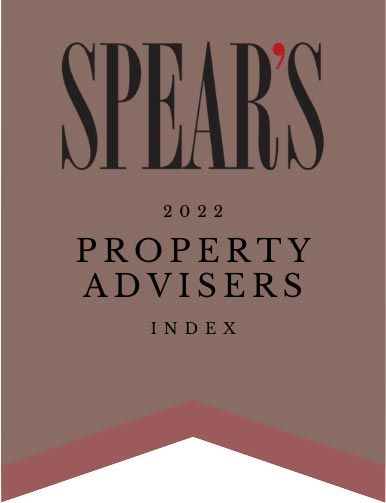When assessing your eligibility for a mortgage, lenders will often start the process by looking at how much you earn on an annual basis against your regular commitments such as personal loans, car finance, credit balances, school fees, and maintenance payments. This guide figure will then be used to calculate how much money you can borrow towards your new home or investment property.
The job of any lender is to establish whether the income you declare is sustainable. They will want to make sure that the money you receive – regardless of where it comes from – can it be relied upon to help you meet your monthly mortgage payments.
If you can prove that you are receiving regular income from alternative sources other than your salary, this could increase the amount you can borrow.
What types of income can count towards my mortgage?
There are a variety of alternative income sources which some lenders will take into consideration when calculating the mortgage you can afford.
- Undrawn pension pots
State pensions, private pensions and pension credits all count as credible sources of alternative income. The key is to have all of your paperwork in order before approaching your lender so you can prove how much you have in your pension pot. Your payslips and your latest P60 will typically contain the information you need.
Alternatively, as an older borrower equity release and later life borrowing may also be an option for you. We would recommend that if you are considering these options, you seek professional advice.
- Top slicing of assets
For those who have a reduced income but are asset rich obtaining the borrowing they require can sometimes present a challenge as they fall outside of the standard lending criteria. If you receive money from stocks and shares, collective investments or property, this income could be considered by some lenders during the application process. This is particularly good news for prospective borrowers who have developed impressive investment portfolios.
Some lenders may top slice the borrower’s assets to allow them to meet the required affordability criteria. Further information regarding top slicing can be given by clicking here or speak with one of our specialist mortgage managers. These assets may include:
- Investments
- Unencumbered property
- Stocks and shares
- Physical assets – these may include cars, paintings, jewellery etc.
The lender’s primary concern is that your investments are secure and likely to deliver a regular return for the foreseeable future. They will assess the performance of your overall portfolio, then calculate the predicted income from these different types of investments and consider how they will affect your mortgage affordability.
As an example, they may assume you will generate a 5% return on your investments as standard per annum, then add this figure to your expected annual earnings. This is often an option for those who are looking to borrow between £150,000 and £1.5million.
In these circumstances arranging your mortgage through a specialist mortgage broker can be highly beneficial. Their experience in presenting the cases of borrowers who are income poor but assets rich to lenders may mean your application is more likely to be accepted, at the level of borrowing you require.
- Non-taxable income
Although many lenders will only consider taxable income when calculating whether you meet their affordability for a mortgage there are some who will also accept non-taxable income. This income may include, maintenance payments, income from trusts etc.
Alternatively, if you can evidence that you earn over £300,000 and/or hold £3 million in assets in the UK or overseas, you may be eligible to an exemption from standard underwriting criteria. However, this will be dependent on finding a lender who will take a holistic approach to assess your financial circumstances, and especially if you are willing to place Assets Under Management with the lender.
- Income earned in a foreign currency
If you are a British expat or a foreign national who lives abroad and earns income in one or more foreign currencies, this may reduce the number of lenders willing to consider your case. However, there is still a range of mainstream lenders who will provide foreign currency mortgages. If you have more substantial borrowing requirements, a private bank may be able to provide you with a more appropriate mortgage product and will take your net income rather than gross income into account.
As a result of working and earning aboard, you may be subject to different tax regimes, which may make your income structure more complex. It will, therefore, be essential to find a lender who will take a view on your circumstances.
- Carried interest
If you work in the field of private equity, you may have unrealised carried interest (share of profits/performance fee). As you have not yet received it, most banks will be unwilling to lend to you based on this income. However, a mortgage brokerage with experience in handling large and complex mortgages will have contacts within a range of private banks who can take a more holistic approach when reviewing your financial circumstances.
- Buy to Let Portfolio income
For borrowers with a portfolio of Buy to Let properties, taxable income from the properties shown on their tax return may be considered by some lenders. If the portfolio has a low gearing (where the Loan to value against the property is low), some lenders may consider the equity as part of a top slice of your assets. A broker with specialist knowledge will be able to guide you through this and help you to find the best mortgage products most suited to your needs and circumstances.
Bear in mind, however, that if you receive rental income from other properties, the lender will need to consider your other mortgage commitments – and this may affect the amount they are willing to let you borrow towards your new property. They may consider you to be more of a liability if you have already taken out several mortgages for various properties, but that’s not to say they won’t offer you a great deal, as long as they can see proof of your accounts and view your existing tenancy agreements.
- Young professionals
For those entering or at the start of their careers as QC’s, barristers or those who have recently become partners in a law firm, some lenders will be willing to take a view on their circumstances. They may take a more flexible approach to current affordability given the expected higher future earnings.
- Directors of limited companies
Lenders will often take the salary and dividends that company directors draw from their businesses into account when calculating affordability. However, some will also consider the company’s net profit before or after tax if the borrower has decided not to draw a full salary.
Also, most lenders will request to see two to three years of accounts. For some, however, this can create a barrier of it is not possible to produce that many years accounts. For company directors, with complex circumstances, arranging a mortgage through a specialist broker can give them access to lenders who will accept just one year of accounts, as well as the full net profit of the business if a full salary is not drawn.
- Performance-based income
Many banks may accept part of your bonuses, commission and other types of performance-based pay as acceptable sources of income for mortgaging purposes, although this type of income may be averaged over two or three years, depending on how much it fluctuates.
How to secure your loan based on alternative or additional income streams
If a high proportion of your income comes from sources other than your salary, you may struggle to find a suitable mortgage deal from a mainstream bank or building society.
This is because many of these larger lenders are unwilling to take a view on those who have what they consider to be a ‘riskier’ income structure. These banks use an almost algorithmic formula to determine a person’s suitability for a loan, and if an individual doesn’t meet all of their strict criteria, they are unlikely to receive an offer.
Seek advice from a more specialist lender, and you’ll find that they are more likely to look at your case from an individual standpoint. Specialist and private banks will often look at the broader picture – they will take your unique circumstances into account, along with your full financial history and how your investments have typically performed to date.
The team at Large Mortgage Loans helps clients with unusual income structures navigate the mortgage market and track down a product that suits their needs and circumstances best. Our brokers have access to all kinds of niche lenders, who can offer more flexible and affordable mortgage products for these types of borrowers. For more information on how we can help you secure mortgage products tailored to you, accounting for your alternative income sources, please contact us today.
There are few situations that our team of highly experience Mortgage Managers have not yet come across. No matter how large or complex your borrowing requirements we aim to make arranging your mortgage as simple as possible.
YOUR HOME OR PROPERTY MAY BE REPOSSESSED IF YOU DO NOT KEEP UP REPAYMENTS ON A MORTGAGE OR ANY OTHER DEBT SECURED ON IT.
Changes in the exchange rate may increase the sterling equivalent of your debt.
Home reversion plans and lifetime mortgages are complex products. To understand the features and risks, ask for a personalised illustration. Equity release will reduce the value of your estate and may affect your entitlement to means-tested benefit.
Past performance is not a guide to future performance. The value of property investments and income from them can go down as well as up, and investors may not get back the amount originally invested. The value of a property is generally a matter of opinion, and the true value may not be recognised until the property is sold. It may be difficult to sell or realise the value of the property in adverse market conditions. Borrowers will still be responsible for maintaining the payment of any mortgage if the property is not rented out and therefore may wish to make suitable provisions for this event. Equity Investments fluctuate in value and may affect your ability to borrow.
Large Mortgage Loans Ltd is regulated by the Financial Conduct Authority. The Financial conduct authority does not regulate taxation and trust advise and some aspects of buy to let mortgages.
https://moneyfacts.co.uk/guides/mortgages/what-income-can-i-use-for-a-mortgage-application/ 05/04/18
https://www.telegraph.co.uk/personal-banking/mortgages/will-mortgage-lenders-accept-income/ 05/12/16
https://www.moneyadviceservice.org.uk/en/articles/how-much-can-you-afford-to-borrow 03/07/18




















